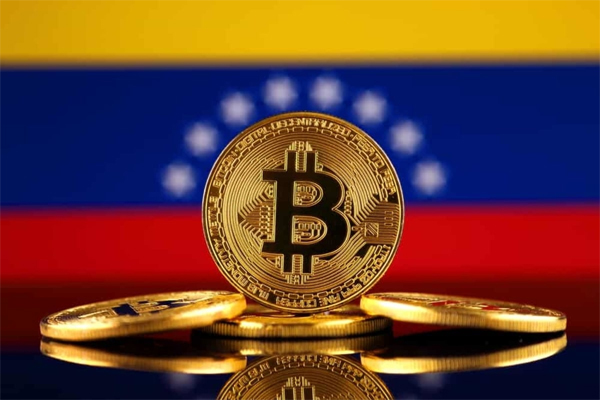
Marianna Parraga y Deisy Buitrago, Reuters
HOUSTON/CARACAS
EnergiesNet.com 04 23 2024
Venezuela’s state-run oil company PDVSA plans to increase digital currency usage in its crude and fuel exports as the U.S. reimposes oil sanctions on the country, three people familiar with the plan said.
The U.S. Treasury Department last week gave PDVSA’s customers and providers until May 31 to wind down transactions under a general license it did not renew due to a lack of electoral reforms. The move will make it more difficult for the country to increase oil output and exports as companies will have to wait for individual U.S. authorizations to do business with Venezuela.
PDVSA since last year had been slowly moving oil sales to USDT, a digital currency also known as Tether whose value is pegged to the U.S. dollar and designed to maintain a stable value. The return of oil sanctions is speeding up the shift, a move to reduce the risk of sale proceeds getting frozen in foreign bank accounts due to the measures, the people said.
“We have different currencies, according to what is stated in contracts,” Venezuelan oil minister Pedro Tellechea told Reuters last week, adding that in some contracts digital currencies might be the preferred payment method.
The U.S. dollar is the preferred currency for transactions in the global oil market. Even though they are emerging in some countries, payments in cryptocurrency are not frequent.
Last year, PDVSA was rocked by a corruption scandal after the discovery of some $21 billion in unaccounted receivables for oil exports in recent years, partially related to prior transactions involving other cryptocurrencies.
The nation’s oil exports have increased under Tellechea, who took over Venezuela’s oil ministry following the scandal. Encouraged by U.S. licenses allowing sales, exports reached some 900,000 barrels per day in March, the highest in four years.
SLOWLY BUT SURELY
By the end of the first quarter, PDVSA had moved many spot oil deals not involving swaps to a contract model demanding prepayment for half of each cargo’s value in USDT.
PDVSA also is requiring any new customer applying to conduct oil transactions to hold cryptocurrency in a digital wallet. The requirement has been enforced even in some old contracts that do not specifically state the use of USDT, one of the people said.
In October, when Washington issued the six-month license that allowed trading houses and former PDVSA customers to resume business with Venezuela, most of them resorted to intermediaries to meet the digital transaction requirements.
“USDT transactions, as PDVSA is demanding them to be, don’t pass any trader’s compliance department, so the only way to make it work is working with an intermediary,” one trader said, referring to how unusual it still is to pay for oil in digital currencies.
PDVSA has relied on middlemen for its own oil sales, especially to China, since the U.S. in 2020 imposed secondary sanctions on Venezuela, disrupting its relationship with large trading partners.
LESS CASH
Increasingly relying on middlemen for transactions could help PDVSA skirt sanctions, but will mean a smaller portion of oil proceeds will end up in its pockets.
Minister Tellechea last week said the country expects to continue signing contracts and crude and gas project expansions during the 45-day wind down period set by the U.S., and will ask potential clients to request specific licenses after that.
Oil analysts expect that even if Washington promptly issues individual authorizations, Venezuela’s oil output, exports and revenue will soon hit a ceiling.
Tellechea rejected that view, saying PDVSA has “a big strength in trading,” and is prepared commercially to address the return of Washington’s sanctions.
Reporting by Marianna Parraga in Houston and Deisy Buitrago in Caracas; Editing by Josie Kao
reuters.com 04 22 2024











